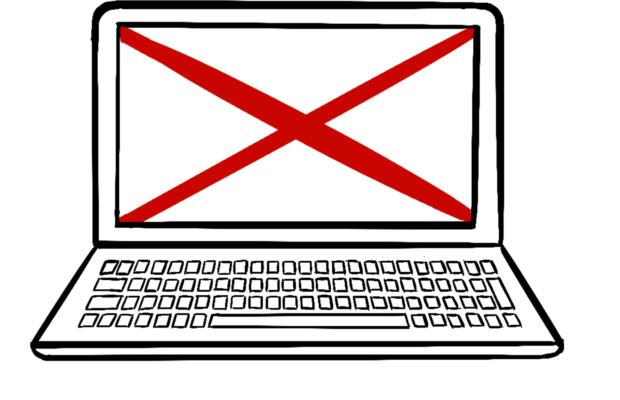School internet censorship needs to simmer down

During my on-campus study sessions, I get as much work done as quickly as possible, so I have less homework at home, but I often finish assignments in the evening. It’s not because I get distracted or by the bell but because the school internet has blocked some resources to help me learn.
In today’s fast-paced technological age, the Internet is critical to get around, as going to the library can sometimes be inconvenient, and some materials can be outdated. The Internet is a wonderful place to streamline information and give students access to sources of knowledge and expertise that may be far outside their immediate environment. A student can gain tons of valuable information at the push of a button, which is critical to remember at an academic institution. The Internet censorship put in place by school officials constructs a digital divide for knowledge-hungry students. Despite some benefits which keep students from going off task, blocking the Internet has mostly unfavorable effects and undermines learning at school.
Multiple times during the school week, I find myself frustrated that I cannot use a pixelated photo for a presentation or cite certain websites for an essay because such sites I need are blocked on the school Wi-Fi. The sites I am using do not contain obscene content, and yet, the school administrators create a massive inconvenience. The Internet restrictions limit the ability to learn and complete work at school and create a situation where many will have to backtrack later to complete their assignment.
A common reason for school Internet restrictions to be put into place is to block students from unsavory websites; however, students can easily bypass this barrier by utilizing their personal cellular data on their phones. Internet deterrence at school is largely ineffective at keeping students away from harmful websites and ultimately inhibits students from accessing educational content.
Even though the ability to use the Internet freely is not a life-threatening situation, it is equally important to have unrestricted access to it because the Internet provides great opportunities for learning. Because of the Internet restrictions put into place, students are blocked from being able to watch videos integral to understanding concepts that will be in a test or AP or IB Exam and are prevented from looking up perfectly legal and informational content.
The harshness of Internet filtering at schools has unsatisfactory impacts on pupils, contrary to what some people believe, and it should be toned down. In order to reduce frustrations and promote unrestricted learning, more websites should be available to students. By checking and manually approving students’ access to restricted content like films or websites, website administrators can play a more active role in regulating how students use the Internet.



